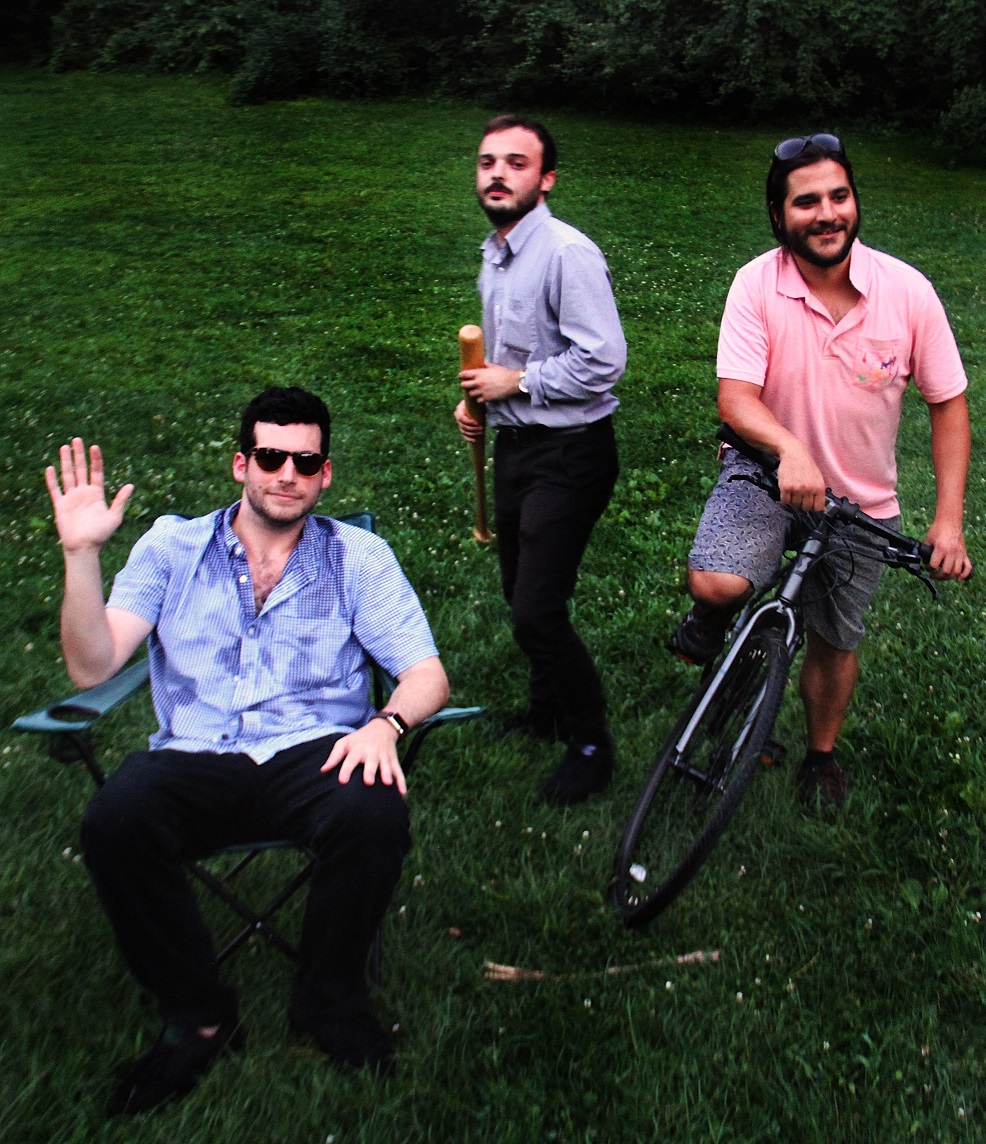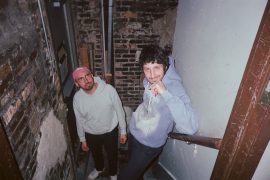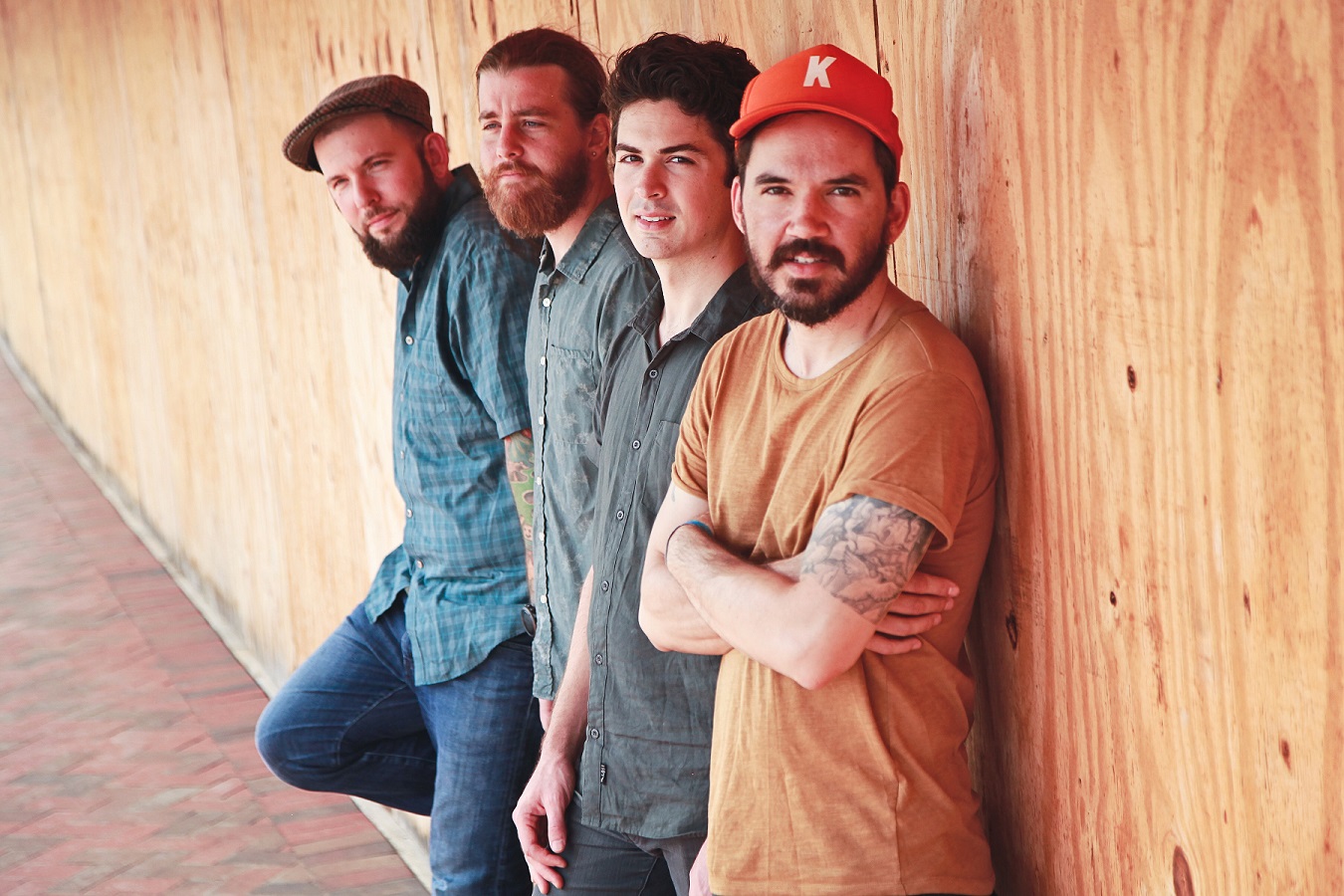New York band The Fluids presents a nostalgic take on classic rock infused with emotion, introspection, and promise on new single “Just Like Me.”
— —
If you look at The Fluids’ artwork, you’re inclined to believe that they’re just some guys who make average garage rock and pursue music because they like the idea of looking cool. They look like normal people with a liking for sports and Swiss Miss hot cocoa. However, when you listen to their music, you realize that Mike Tony, Nick DeMolina, and Cooper Formant are far from average. Their newest single, “Just Like Me,” which Atwood Magazine is proud to be premiering today, is a nostalgic take on classic rock infused with emotion and introspection, and promises to be remembered years from now.
Listen: “Just Like Me” – The Fluids
“Just Like Me” starts off by sending you intergalactic signals, with a gradually growing synth that can’t help but make you think you’re floating in space. The Fluids bring you straight back to Earth when the drums and guitar kick in and drastically change the mood of the song – their thing is rock and roll after all, and they’re here to prove that to you.
And lately
Lately I’ve been watching the clock
And I’ve been hoping
That maybe we could slow down
But I left my bag in your backwards town
Well I went to the country
To dine like a king
And swat at the fruit flies
I look through the ruins
They’re dusty and timeless
They’re just like me
Lead singer Mike Tony has a voice that promises to make history. Remarkable and emotive, he sings to the rhythm of the song almost breathing every word out – you can hear rawness and hint of desperation which add an undeniable and powerful layer of truth to the song. His words match the feeling in his voice – he, fruitlessly, hopes things “could slow down” and compares himself to “dusty and timeless” “ruins”, forgotten, wearing away, insignificant since he looks “through” and not at them.
I wish these words could move you
But you only dance for him
The two-line chorus raise the song’s intensity, with the instruments coming in more strongly and Tony’s voice, realizing he will not achieve what he wants, goes a little quieter. The short instrumental break between the chorus and the second verse allows the emotion to emanate from the instruments only – a nostalgic and warm guitar tone and riff and the steady pulse of the drums with the occasional lingering sound of the cymbal to switch things up.

So maybe
One after another
We could walk away
We could walk away from it all
From it all
So I went to the country
To die like a king
And swat at the fruit flies
I look through the records
They’re dusty and spineless
They’re just like me
Tony hopes to escape with the person he is singing the song to. It seems like he doesn’t only want to escape the place he’s in, but also wants to escape himself, an idea that is heightened at the end of the verse. He compared himself to ruins on the first verse, but now he is comparing himself to “records” and saying that their similarities lie in the fact that they’re both “dusty and spineless”. The idea of being forgotten is evoked again by the image of the dust, but Tony criticizes himself in yet another way when he says he is “spineless”, a coward, poking at some internal character flaw which he perceives as being applicable to him. Interestingly enough, the two objects which he compares himself to – ruins and records – are two objects which symbolize someone’s or something’s history, their sole purpose is to serve as physical evidence that those people or that civilization existed. They remain on the Earth long after the people who created them are gone and serve as their almost eternal legacy. Tony, then, through his music, is creating his own legacy while also expressing a desire to be remembered, like the ruins and records serve for people to remember their creators.
Well lately
Lately I’ve been watching the clocks
And hoping
I’ve been hoping I could slow down
I wish these words could move you
But you’ll never dance for me
Tony finishes the song by internalizing the narrative which he started the song with. The rhythm slows down and the instrumental section of the song is gradually reduced in scale while Tony says his last words. At first, he thought him and the person to whom he’s singing could slow down, but at the end he is only hoping he could do the same. Then, instead of saying that his words won’t move the person he’s singing to cause they only dance for someone else, he points the narrative towards himself again and says that these words don’t move this person because they’ll “never dance” for Tony. The level of introspection builds throughout the song, a feeling which is heavily aided and facilitated by Tony’s remarkable vocals.
“Just Like Me” fades out slowly, like a slow-burning candle which you wish will burn eternally. It is such an evocative, strong offering from The Fluids that it makes it hard to believe that they are not destined for greatness. It feels fashionably old, like it is bringing back the spirits of classic rock and guitar music to 2017, but somehow manages to have the band’s own sonic fingerprint on it too. If Tony wishes that his music does the same thing as the ruins and records he references on the song, “Just Like Me” is most definitely a step in the right direction in creating The Fluids’ musical legacy. Now we wait to savour the rest of their music on their debut album, out on October 27th via Axis Mundi Records.
— — — —
:: Pre-order No Kidding! here ::
— — — —

Connect to The Fluids on
Facebook, Twitter, Instagram
Discover new music on Atwood Magazine
photo © Jordan Kuyper








